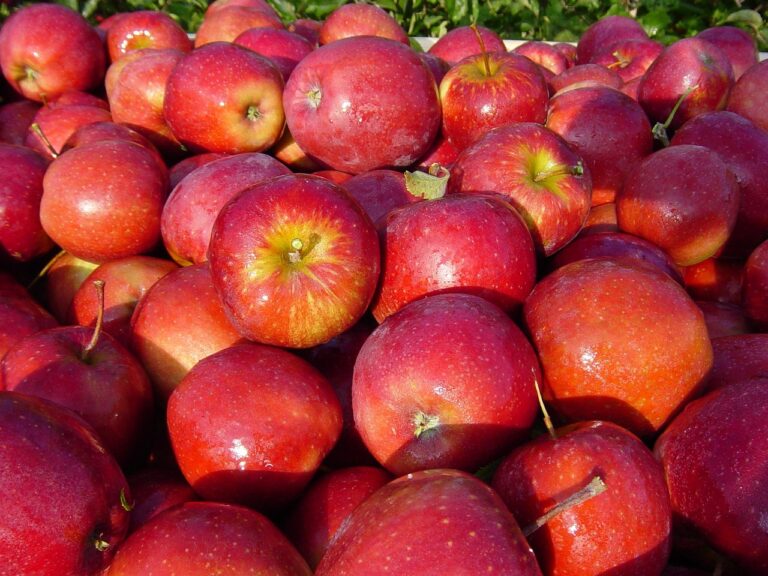The Role of Big Data in Frozen Food Production: 11xplay reddy login id and password, King567 signup, Skyinplay exchange
11xplay reddy login id and password, king567 signup, skyinplay exchange: Big Data has become a key player in various industries, revolutionizing the way businesses operate and make decisions. In the food production sector, particularly in frozen food production, the role of Big Data is becoming increasingly significant. This article will delve into how Big Data is transforming the frozen food production industry and the benefits it brings to businesses.
Understanding Big Data in Frozen Food Production
Big Data refers to the massive volume of structured and unstructured data that is generated by businesses on a daily basis. This data is collected from various sources, including social media, sensors, and other digital platforms. In the frozen food production sector, Big Data plays a crucial role in streamlining operations, optimizing processes, and improving overall efficiency.
One of the key ways Big Data is used in frozen food production is in supply chain management. By analyzing data related to inventory levels, demand forecasts, and production schedules, companies can optimize their supply chain processes to ensure products are delivered on time and in the most cost-effective manner. This not only helps reduce costs but also improves customer satisfaction by ensuring products are readily available.
Another area where Big Data is making a significant impact in frozen food production is in quality control. By utilizing data analytics tools, companies can monitor production processes in real-time, identify any anomalies or deviations, and take corrective actions to ensure product quality is maintained. This proactive approach helps businesses prevent quality issues before they escalate, ultimately saving time and resources.
Furthermore, Big Data is also used to analyze consumer trends and preferences. By collecting and analyzing data from social media, online reviews, and other sources, companies can gain insights into consumer behavior and tailor their product offerings to meet market demands. This allows businesses to stay ahead of the competition and deliver products that resonate with their target audience.
Benefits of Big Data in Frozen Food Production
The use of Big Data in frozen food production offers a wide range of benefits for businesses. Some of the key advantages include:
1. Improved efficiency: By leveraging data analytics tools, companies can streamline operations, reduce waste, and optimize production processes, leading to improved efficiency and cost savings.
2. Enhanced quality control: Big Data enables businesses to monitor production processes in real-time, identify quality issues, and take corrective actions swiftly, resulting in higher product quality and customer satisfaction.
3. Better decision-making: With access to data-driven insights, companies can make informed decisions about product development, pricing strategies, and marketing campaigns, ultimately driving business growth and profitability.
4. Personalized customer experiences: By analyzing consumer data, businesses can tailor their product offerings to meet the individual preferences of their customers, creating personalized experiences that foster brand loyalty.
5. Competitive advantage: Companies that harness the power of Big Data in frozen food production can gain a competitive edge in the market by staying ahead of trends, anticipating consumer needs, and delivering innovative products.
In conclusion, the role of Big Data in frozen food production is instrumental in driving operational efficiency, improving quality control, and enhancing customer experiences. By leveraging the power of data analytics, businesses can optimize their processes, make informed decisions, and ultimately achieve success in a competitive market landscape.
FAQs
Q: How can businesses integrate Big Data into their frozen food production processes?
A: Businesses can integrate Big Data into their processes by investing in data analytics tools, leveraging cloud-based platforms for data storage and analysis, and training employees to interpret and act on data insights.
Q: What challenges do businesses face when implementing Big Data in frozen food production?
A: Some common challenges include data security concerns, data integration issues, and the need for specialized skills to analyze and interpret data effectively.
Q: How can businesses measure the return on investment (ROI) of implementing Big Data in frozen food production?
A: Businesses can measure ROI by tracking key performance indicators (KPIs) such as cost savings, production efficiency gains, and customer satisfaction improvements resulting from the use of Big Data analytics.
Q: What are some best practices for leveraging Big Data in frozen food production?
A: Best practices include setting clear objectives for data analysis, ensuring data quality and accuracy, fostering a data-driven culture within the organization, and continuously monitoring and refining data strategies to drive business success.







